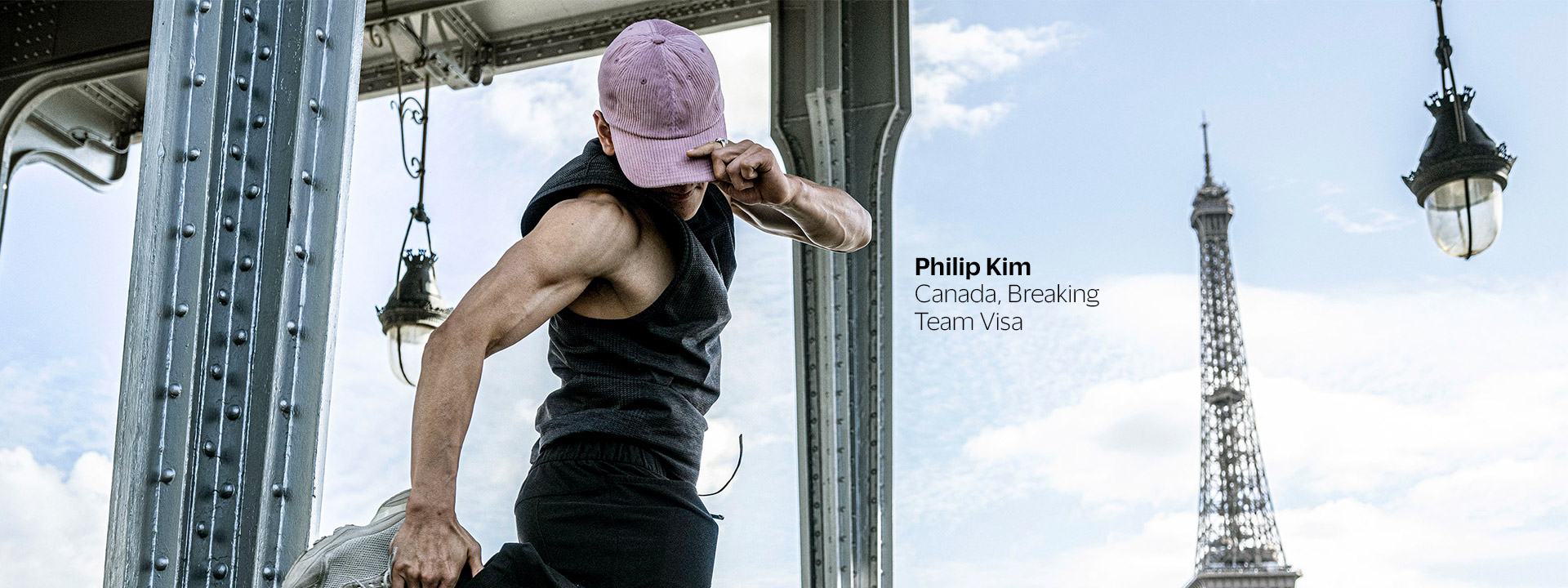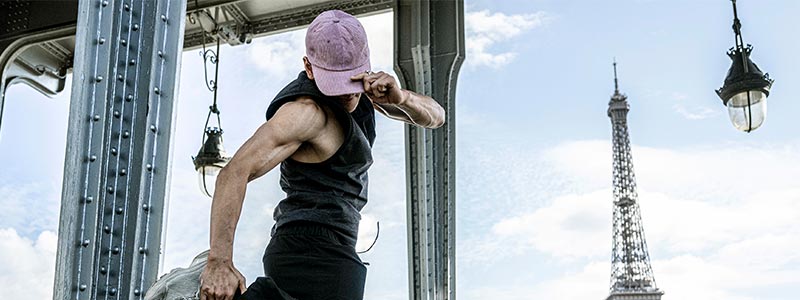

Sometimes, if you're lucky, you'll experience a moment that makes it crystal clear what you should be doing with your life.
When he saw street dancers performing in front of an art gallery in his hometown of Vancouver, B.C., Philip Kim, a.k.a. B-Boy Phil Wizard, had that moment. At age 11.
“They were spinning on their heads, doing all of these crazy movements, and I was just blown away,” he said.
When the same dance crew visited his elementary school to teach hip-hop choreography, Philip asked one of the dancers if he could teach him to break.
“I started taking lessons and just never stopped,” he said.
Fighting without the fighting
Breaking, or what many who lived through the ‘70s and ‘80s might call breakdancing, is a competitive freestyle dance making its debut as a new sport at the Olympic Games Paris 2024. From toprocks to leg swings, freezes to power moves, fans in Paris and around the world will get a chance to catch a glimpse of the incredible athletic ability, intricate footwork and rhythmic transitions performed by breaking’s B-Boys and B-Girls.
“It brings the sport to a bigger platform for more people to see, which I'm always excited about. I know that it will be very entertaining and people will really fall in love with it,” said Philip.
Like a rap battle for your feet (and head and hands), nothing in breaking is choreographed. When two dancers go head to head, taking turns showcasing their skills and improvising movements in response to the DJ’s break beats, everything is spontaneous.
“It’s a very high-energy dynamic sparring sport. It’s similar to fighting, but without the actual fighting,” added Kim.
At its core, breaking is a way to celebrate individual style and innovation. “No two people approach breaking the same way,” said Philip. “That brings a lot of uniqueness to what we do.”
A B-Boy is born
Breaking as a career path didn’t always seem possible for Philip, but giving up was never really an option.
“My parents are always super supportive, but they wanted something different for me. They wanted me to go to school and I just really wanted to break. I didn’t want to do anything else,” he said.
To make a living off the sport — something only a handful of competitive breakers can do — he couldn’t just be good. He had to be one of the best in the world.
If there was any doubt, qualifying for the Olympic Games in Paris erased it.
Representing Canada and Team Visa in Paris
Visa supports athletes like Philip and his good friend, B-Boy Shigekix from Japan, through Team Visa.
“To have this platform and be with a company like Visa is really incredible and something I never thought that I would be a part of. It’s super exciting.”
The sport has allowed Philip to travel the world, from South Africa to Morocco to Korea, a country he calls his second home.
“My parents have a Korean background and in Korea, it’s huge to go to the Olympic Games and to represent your country on a national level. Now to be able to do that for Canada, where I was born and raised, that means the world to them and for me. I can see the pride that they have and the excitement.”